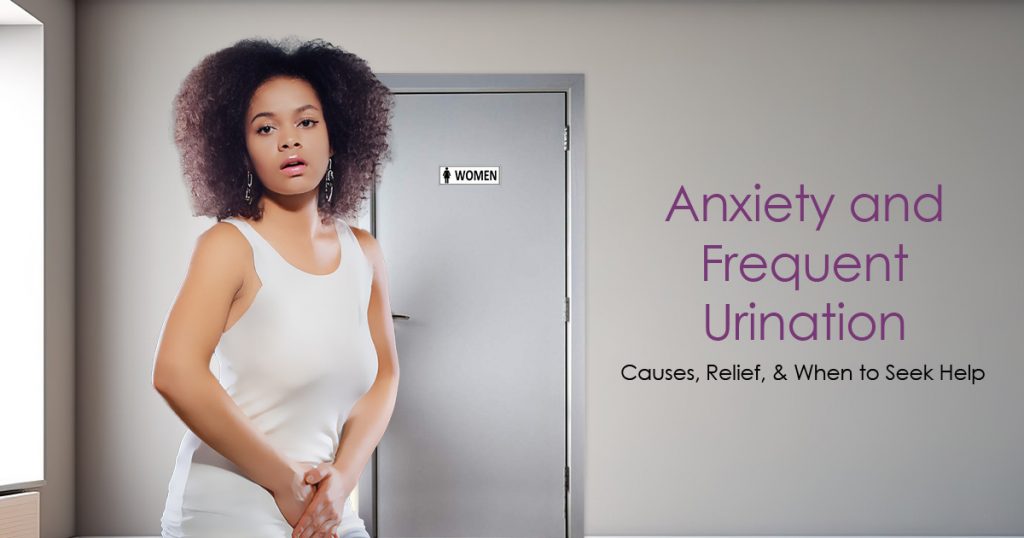Do you feel anxious all the time? It’s normal to worry now and then, but constant anxiety is different. Anxiety is your body’s way of preparing to deal with something stressful or scary. While this is helpful in short bursts, feeling nervous all the time can wear you down.
For some people, occasional worry can turn into chronic anxiety, where fear and stress take over their everyday lives. Living in this constant state isn’t good for your health. Mentally, it drains your focus and peace of mind. Physically, it can mess with your body, causing trouble like sleep problems, weakened immunity, and even a higher risk of heart issues. Anxiety disorders are very common, affecting over 40 million adults in the U.S. each year, according to the Anxiety and Depression Association of America. But the surprising part? Less than 40% of those struggling actually get treatment.
Anxiety doesn’t just affect your mood or mind—it can show up in your body in surprising ways. One unexpected area it impacts is your bladder.
The Connection Between Anxiety and Bladder Problems
Does being anxious make you feel like you need to pee more? It might sound strange, but it’s actually pretty common. Stress and anxiety can lead to frequent trips to the bathroom, and here’s why.
When you’re anxious, your body goes into “fight-or-flight” mode. This is how your body prepares to deal with stress or danger. During this time, your body releases stress hormones, like adrenaline, which speed up certain processes. One of these is your urge to go to the bathroom. Basically, your body wants to empty the bladder so it can focus on handling the “threat.”
On top of this, anxiety can tighten the muscles in your stomach area and make your nervous system work overtime. This can confuse signals between your bladder and brain, making you feel like you need to go even if your bladder isn’t full. If you’re always stressed or anxious, your body stays in this state, which can make the problem worse.
Common Symptoms of Anxiety-related Urination
- Feeling like you need to go more often than usual, even after just going
- Only passing a small amount of urine, but still feeling urgency
- Waking up at night several times to pee
- Sudden pressure or urgency, especially during stressful moments
- Struggling to control the urge, which may lead to leakage or accidents in extreme cases
How to Stop Frequent Urination from Anxiety
Dealing with anxiety-related frequent urination can really mess with your daily life. It might wake you up multiple times at night, leaving you tired the next day. During the day, it can be disruptive at work, school, or even when you’re out with friends. You might start feeling worried about finding a bathroom in time, which can dent your confidence. But don’t worry—there are ways to take control and make things better.
1. Find Ways to Relax
Stress makes things worse, so calming your mind and body is important. Try breathing exercises, meditation, or gentle yoga to help you relax. Even short breaks during a stressful day can make a difference.
2. Make Healthy Choices
Exercising regularly, eating balanced meals, and staying hydrated can help overall. Cut back on drinks like coffee and alcohol since they can irritate your bladder and make you pee more.
3. Plan Bathroom Breaks
Instead of rushing to the bathroom every time you feel the need, try sticking to a schedule. Go at regular times, and slowly see if you can increase the interval between trips.
4. Improve Your Sleep
Better sleep can reduce nighttime bathroom trips. Avoid heavy meals or too much water before bed. Try calming activities, like reading or listening to soft music, before you sleep.
5. Slow Down and Manage Stress
Life can feel overwhelming, but slowing down can help reduce anxiety. Take time out to breathe, stretch, or do something you enjoy. Even small changes to your
daily routine can help.
6. Get Help if Needed
Sometimes, you’ll need more support to manage anxiety. Talking to a therapist can be a good step. They can teach you coping strategies or suggest therapy like CBT (Cognitive-Behavioral Therapy). If it’s a serious issue, don’t hesitate to reach out to a doctor.
When Anxiety and Urge to Pee Are Normal
It’s totally normal to feel anxious or notice you need to pee more often in certain situations. For example, before a big presentation, a test, or even a date, your body might react this way. It’s just part of how your body handles stress—it’s getting you ready to face a challenge. Once the moment passes, these feelings usually go away.
But if you’re feeling anxious and running to the bathroom all the time—more than usual—it might mean your body is overwhelmed. This is when it’s a good idea to take a step back and focus on taking better care of yourself. Anxiety and frequent urination can be signs that your mind and body are asking for some help.
Small changes in your lifestyle can make a big difference. Exercise regularly, eat healthy, and stay hydrated can help your body function better. At the same time, learning how to relax—like trying deep breathing, mindfulness, or just taking a break from a busy day—can help calm anxiety.
Taking care of your mental and physical health is an important step toward feeling better. It not only helps with symptoms like frequent trips to the bathroom but also boosts your overall well-being. And if things don’t improve, talking to a therapist or doctor can give you more support and tools to manage these feelings.
